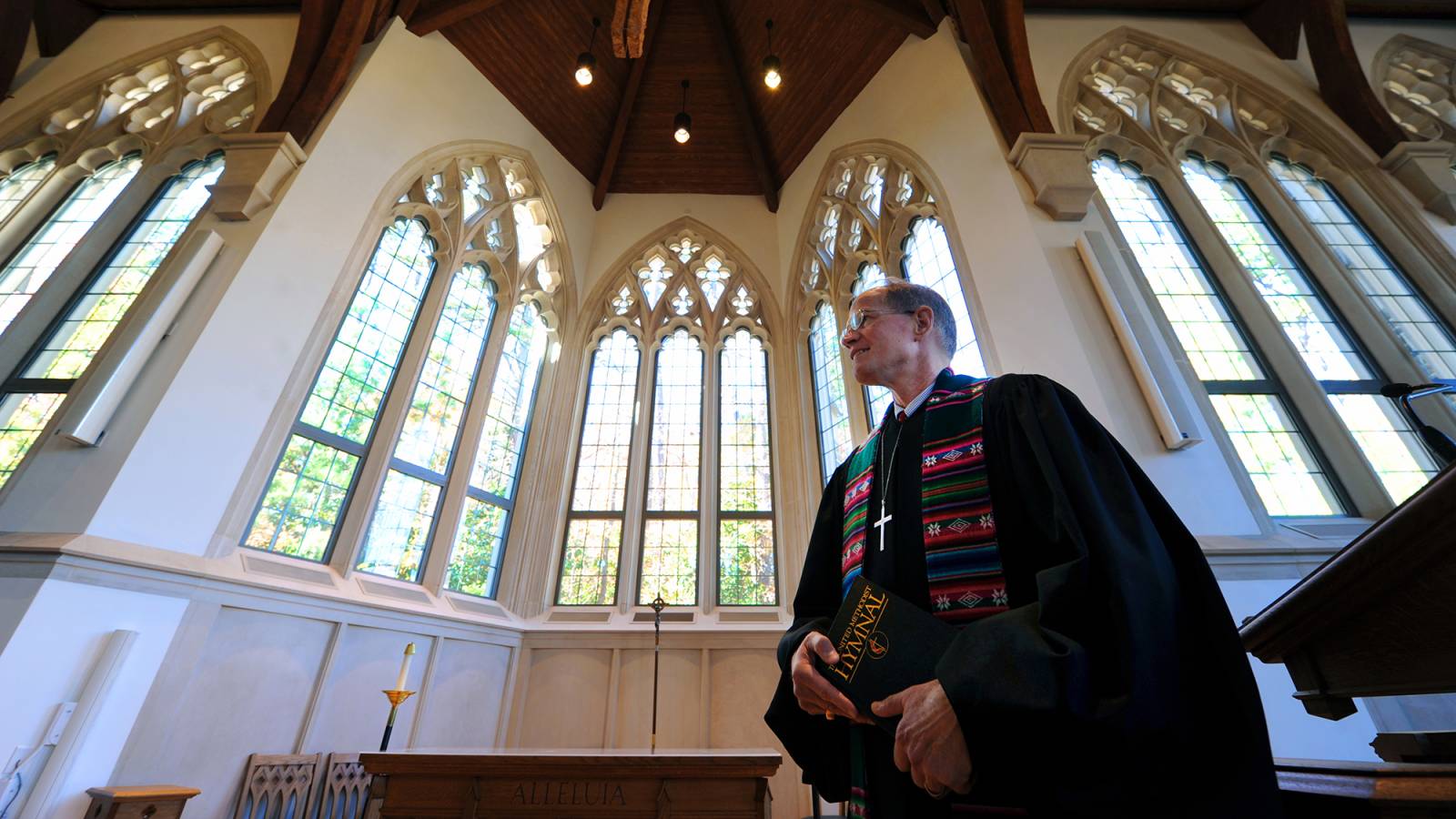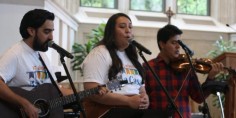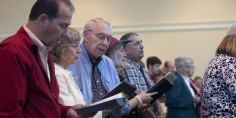Using findings from an ongoing evaluation, the initiative entered a “2.0” phase in 2011 with another $3.8 million grant from the Endowment.
Thie became director in July 2013, taking over from the Rev. Jeremy Troxler, who left to become pastor of Spruce Pine United Methodist Church in rural Spruce Pine.
“The Thriving Rural Communities Initiative helps us understand that rural churches are not a stepping stone to ministry in more ‘important’ places,” Thie says. “Rather, these are places where people can faithfully live out their ministries.”
In the following interview, he talks more about his career in business, his early struggles with Christianity, and his hopes for the effort that he now leads.
Q. I was interested to read that you earned an MBA before your Divinity degree. What was your field?
A. After I graduated from college, I worked for a restaurant company and then earned my MBA.
Q. What restaurant company?
A. I was a multi-unit manager for Pizza Hut and I had 30 restaurants that covered Kentucky. Then I worked for Golden Corral Steak Houses as a franchisee consultant and a district manager.
Q. Why did you want to change careers?
A. I just knew vocationally that I wasn’t in the right spot. I would receive a promotion, receive a bonus, and everything would be OK for a while. But I was still not settled.
Q. So what happened?
A. At the age 34, I took Disciple Bible Study at Mount Pisgah United Methodist Church in Greensboro. Instead of arguing with the Bible, I just tried to be obedient to whatever I was reading. In November of that year, in 1994, I heard a very distinct calling to be a pastor. I finished my job with Golden Corral and by August 1995, I was enrolled here at Duke.
Q. Can you tell me more about what your faith looked like before you took the Disciple class?
A. I was raised in a Methodist Church and had very faithful parents. From age 18 to 27, I was an agnostic and then an atheist. I didn’t believe in God. I didn’t pray. I gave up hope.
At the age of 27, my wife and I started to attend a church. But I had things I wasn’t willing to let go of.
Q. How did the Disciple study help you?
A. I saw a real, loving, Christian community in action — people who opened their lives to me and allowed me to open my life to them. I began trusting God.
The other thing might sound simpler, but my wife and I started to tithe. Money had served as a guide in my life. When I started to tithe, I quit thinking about myself as working for a corporation and started thinking of myself as working for God.
Q. When you started your divinity degree, did you know from the beginning that it was the right decision?
A. From the time I started until the time I was ordained, I was always prepared — and at times even hoping — for someone to tell me I wasn’t cut out for this.
Q. Your first church appointment was in rural Seagrove. Tell us about that experience.
A. There was nothing like the Thriving Rural Communities Initiative back then and I was completely unprepared for that kind of ministry. I remember someone asking my wife if they could have a “pounding,” and she asked if it would hurt.
But a pounding meant that on our first Sunday morning, the congregation filled the first two pews with bags of flour, sugar, rice, paper towels. For months after that, every time we ripped off a paper towel, we remembered the love they showed us.
Q. Now you’re back at Duke Divinity School. Does it feel as if you’ve come full circle?
A. When I came here to interview for this job, I told them ‘I was surprised you let me in the first time!’
Seriously, my whole life has been about developing people, mentoring people and investing in people. It all comes together in the work I’m now doing.
Q. What do you tell students about the joys of serving a rural church?
A. In a rural church, families give pastors unique access. We are invited to birthday parties, pig pickins’, to the lake house. We’re also invited into the household after a death of a loved one. We’re allowed in at the hospital when the sign says ‘No Visitors.’
Q. And the challenges?
A. Travel time to the local grocery store. The unevenness of health care. The little bit of loneliness that accompanies us.
Q. What role can a church play in rural communities?
A. At my last church, we hosted blood drives, fall festivals, free community meals, basketball games. It was the place where people voted. Just because of the facilities we had, there was no place nearby that could have served the same role as a community gathering place.
Our hope is that rural churches and their clergy can be a transformative presence in the community.
Q. Where will the Thriving Rural Communities Initiative be in five years?
A. The early returns show that we are producing the spiritually-formed disciple-making leaders that the initiative hoped for.
Right now, we have 22 Rural Fellow alums who are serving local churches. We have 25 Rural Fellows who are currently enrolled at the divinity school… So within five years, we will have 50-plus leaders making a difference in the rural communities they serve.









